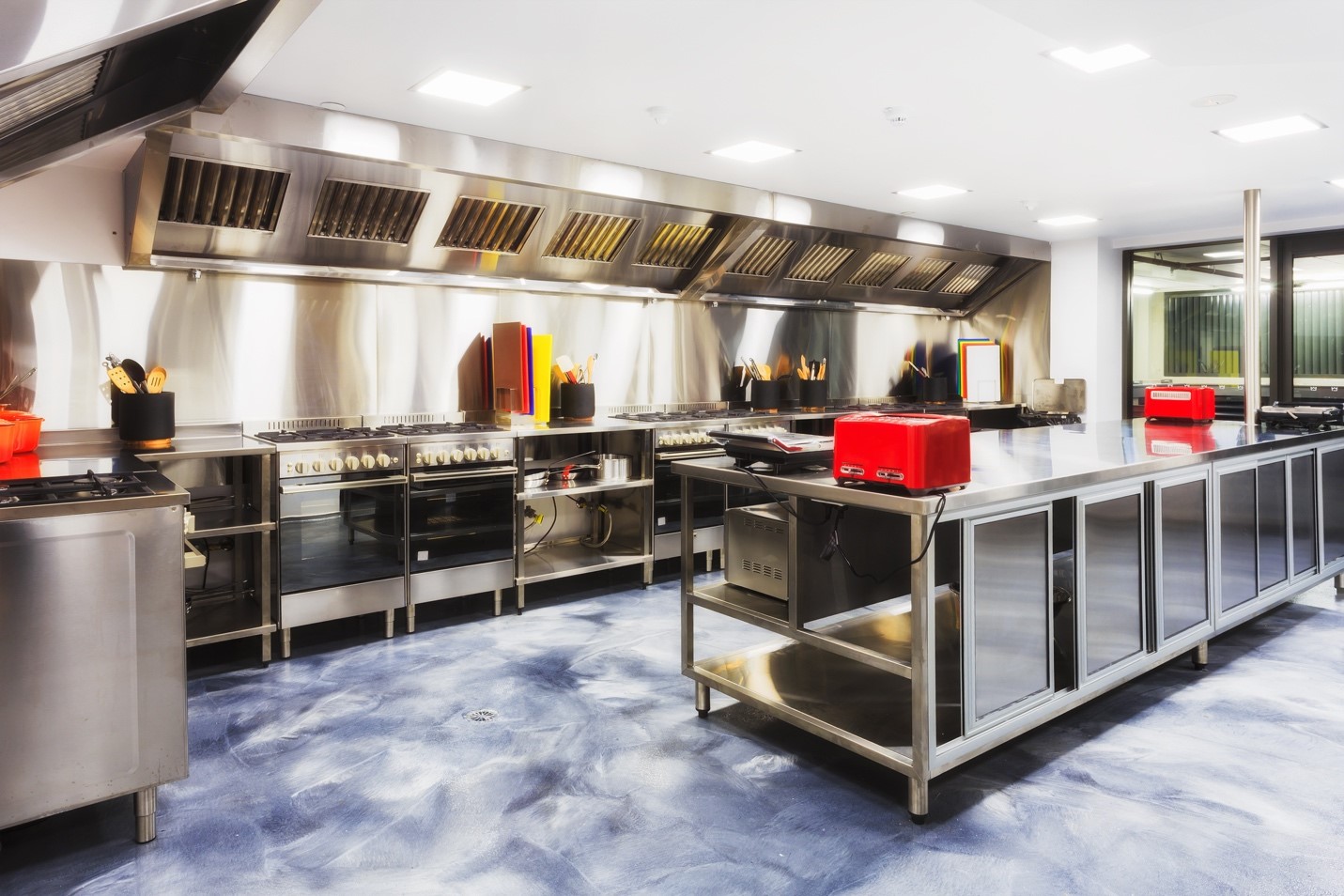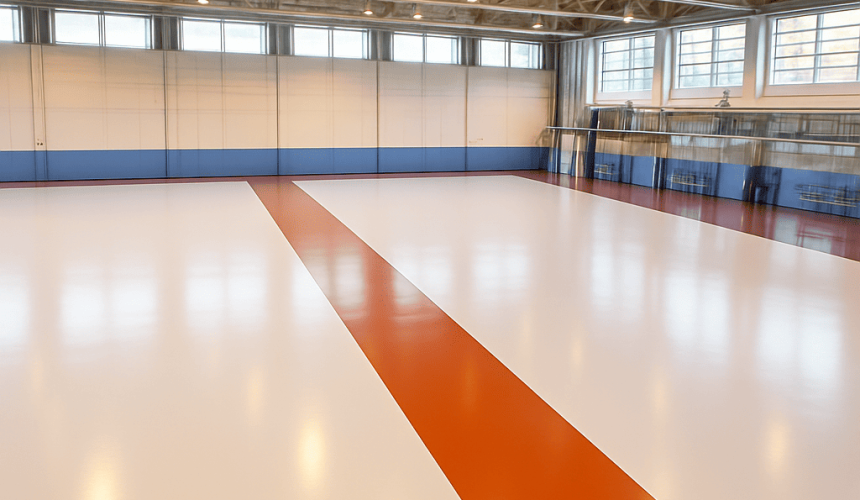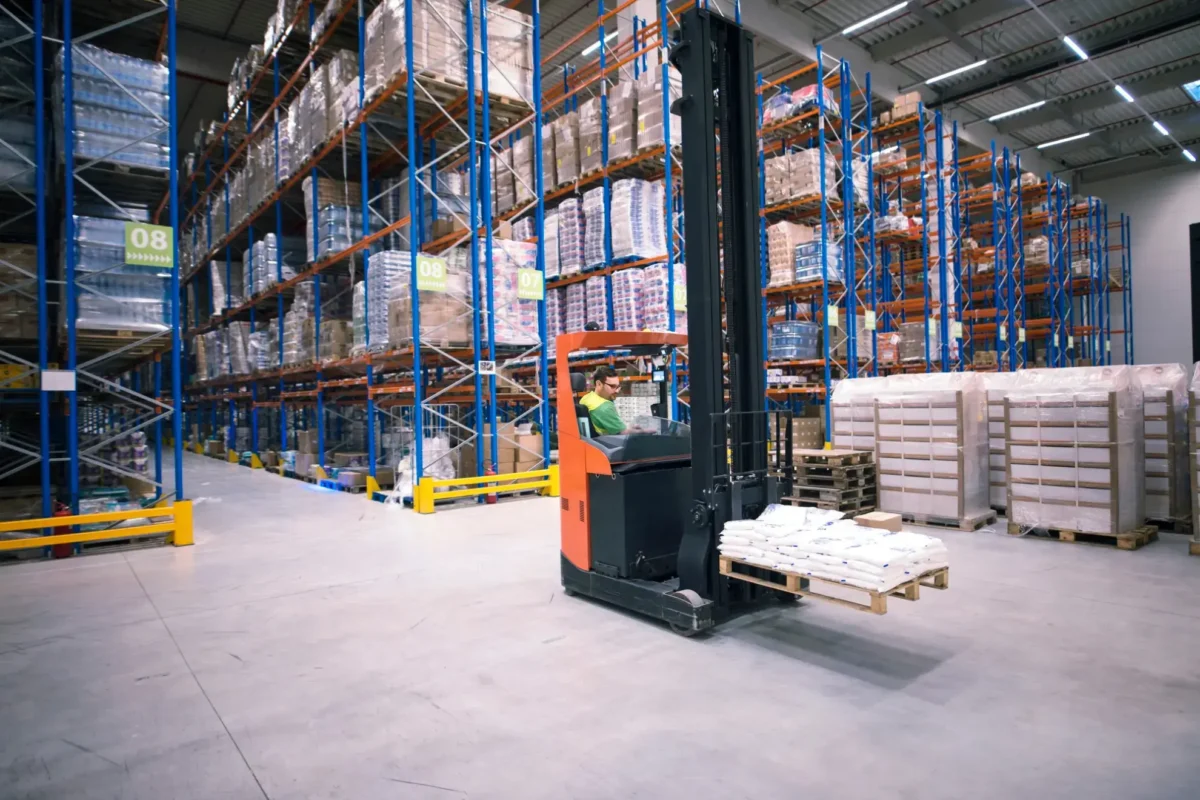Do Not Neglect Your Flooring, If You Are Dealing With Corrosive Chemicals

Whenever your facility is susceptible to oil leaks from vehicles like airplanes and trucks or chemical spills related to the manufacturing of products, having the right flooring protection in place is critical to the safety of your employees. However, the right flooring goes beyond protecting your facility or the people inside it. It can also protect the environment and community around you. That is where chemical-resistant floors come into play.
Unprotected concrete floors absorb chemicals and liquids. Those chemicals then spread throughout the concrete and can even leak all the way through into the ground below becoming a danger to the environment and becoming a liability to your business.
In industries and laboratories where corrosive chemicals are handled, it is crucial to prioritize safety and take proactive measures to protect the infrastructure and personnel. While safety protocols and personal protective equipment (PPE) play a significant role, the flooring should not be neglected. Chemical resistance flooring, specifically epoxy flooring, is essential to maintaining a safe and productive environment.
In this blog post, we will explore the importance of chemical resistance flooring and highlight the benefits of chemical-resistant epoxy flooring.
Understanding Chemical Resistance Flooring
Chemical resistance flooring is a specialized type designed to withstand the corrosive effects of chemicals, acids, alkalis, solvents, and other hazardous substances. Its primary purpose is to create a protective barrier that prevents chemical spills from damaging the underlying structure.
Some common corrosive acids include hydrochloric acid, sulfuric acid, and nitric acid. Examples of corrosive bases are ammonium hydroxide, potassium hydroxide, and sodium hydroxide.
Fluoroantimonic acid is the strongest acid and one of the most corrosive, but experts say that in some ways, hydrofluoric acid is still the most dangerous.
Choosing to floor for business is anything but a relatively simple process. More than just something customers and employees walk on, there are safety and compliance implications that go into engineering the right commercial or industrial floor. Plus, if you’re in a business that deals with caustic or otherwise dangerous and hazardous chemicals that can erode traditional floors, you’ve got to be sure the solution you’re installing will stand the test of time. Contamination will not only destroy a floor but also put employees and customers at risk. When considering a flooring solution that can withstand a chemical attack, you need to work with flooring experts with access to a wide variety of materials and coatings. This expertise will enable you to find a safe commercial option for a chemical-resistant flooring system that will fit your needs and be durable enough to stand the test of time.
Types of Chemical Resistance Flooring
Various types of chemical resistance flooring are available, including epoxy, polyurethane, vinyl ester, polyurethane, and methyl methacrylate.
- Epoxy flooring is popular due to its durability and ability to withstand various chemicals. Polyurethane flooring offers excellent chemical resistance along with resistance to abrasion and impact. Floorkrete offers FloorScreed EP(R) range of products.
- Vinyl ester flooring is highly suited for most corrosive chemicals, cost-effective in the long run, and easy to maintain, making it suitable for many environments. FloorChem VE range of products can be chosen for protecting floors.
- Polyurethane flooring is another class of chemical resistance flooring that provides resilience and slip resistance, making it ideal for areas prone to spills. However, it is extremely resilient – which gives it increased resistance against punctures and other damage from falling objects. Floorkrete offers a wide range of products under FloorThane
- Methyl methacrylate (MMA) based flooring is designed to withstand highly corrosive substances used in cold storage, food, and beverage industries keeping surfaces sterile. Flooring based on MMA is UV-resistant, flexible, and abrasion resistance. FloorFresh is the right choice for such an application.
Factors such as the specific chemical environment and industry standards should be considered when selecting chemical resistance flooring.
The Importance of Chemical-Resistant Epoxy Flooring
Chemical-resistant epoxy flooring is essential in various industrial, commercial, and even residential settings where chemical exposure is a concern. Here are some key reasons why chemical-resistant epoxy flooring is crucial:
Superior Protection
Chemical-resistant epoxy flooring is widely recognized for its exceptional resistance to a wide range of corrosive chemicals. Its seamless and impervious surface provides a strong barrier against spills, preventing them from seeping into the concrete or damaging the subfloor.
Durability and Longevity
Epoxy flooring is known for its durability and long-lasting performance. It can withstand heavy foot traffic, impact, and abrasion, ensuring the flooring remains intact and fully functional even in demanding industrial environments.
Easy Maintenance
This type of flooring is relatively easy to clean and maintain. Its smooth surface makes it resistant to stains, and spills can be easily wiped away without causing permanent damage. Regular maintenance practices, such as routine cleaning and inspections, can help prolong the lifespan of the flooring.
Safety Enhancement
It can be customized with slip-resistant additives, creating a safer working environment. This feature is particularly crucial in areas where the flooring may be exposed to wet or oily conditions, reducing the risk of accidents and injuries.
Industries requiring Chemical Resistant Flooring
Here are some of the commercial and industrial applications where you’ll find acid and chemical-resistant floors:
- Pharmaceutical plants
- Biotechnology facilities
- Food processing facilities
- Chemical processing environments
- Medical and healthcare premises
- General manufacturing operations
- Boiler rooms and cold rooms
- Commercial kitchens
- Laboratories
- Water treatment plants
- Wineries, breweries and distilleries
Factors to Consider when Choosing Chemical-Resistant Flooring
When choosing chemical-resistant flooring, several factors must be considered to ensure you select the most suitable option for your specific needs. Here are some key factors to keep in mind:
Chemical Compatibility
Different chemicals have varying levels of corrosive properties. It is essential to assess the chemicals used in your facility and select flooring that can withstand their corrosive effects.
Installation Process
The installation of chemical resistance flooring should be carried out by professionals with expertise in the field. Proper surface preparation and installation techniques are critical for optimal performance and longevity.
Industry Regulations and Compliance
Ensure the selected chemical-resistant flooring meets industry standards and complies with relevant regulations. This helps to ensure the safety of the facility and its occupants.
Slip Resistance
Depending on the environment, slip resistance may be an essential factor. Chemical spills can create slippery surfaces, leading to accidents. Look for chemical-resistant flooring options that offer adequate slip resistance to enhance safety in the specific environment.
Cost and Life Cycle
Evaluate the overall cost of the flooring system, including installation, maintenance, and long-term durability. While chemical-resistant flooring may have a higher initial cost than standard flooring options, consider the long-term benefits and potential savings in reduced repairs, replacements, and downtime.
Why Choose Floorkrete?
Floorkrete is a leading choice for various applications due to several compelling reasons. With a strong reputation for innovation, quality, and customer satisfaction, Floorkrete offers cutting-edge epoxy resins and coatings solutions. Our products are known for their exceptional chemical resistance, durability, and long-term performance. We prioritize extensive research and development, ensuring its offerings are at the forefront of technological advancements.
Moreover, our commitment to environmental sustainability and compliance with industry standards make them a reliable and responsible choice. Our dedicated customer support, technical expertise, and customizable solutions further solidify our position as a preferred partner for epoxy resin and coating needs.
Conclusion
Neglecting the importance of chemical-resistant flooring can have severe consequences in facilities dealing with corrosive chemicals. Investing in Chemical resistant epoxy flooring protects the facility’s structural integrity and safeguards the well-being of employees and the environment. By selecting the appropriate chemical resistance flooring and implementing regular maintenance practices, you can create a safe and productive workspace that can withstand the challenges of corrosive chemicals.
Remember, when it comes to handling hazardous substances, every aspect of safety matters. Don’t overlook your flooring—it’s integral to a comprehensive safety strategy.





